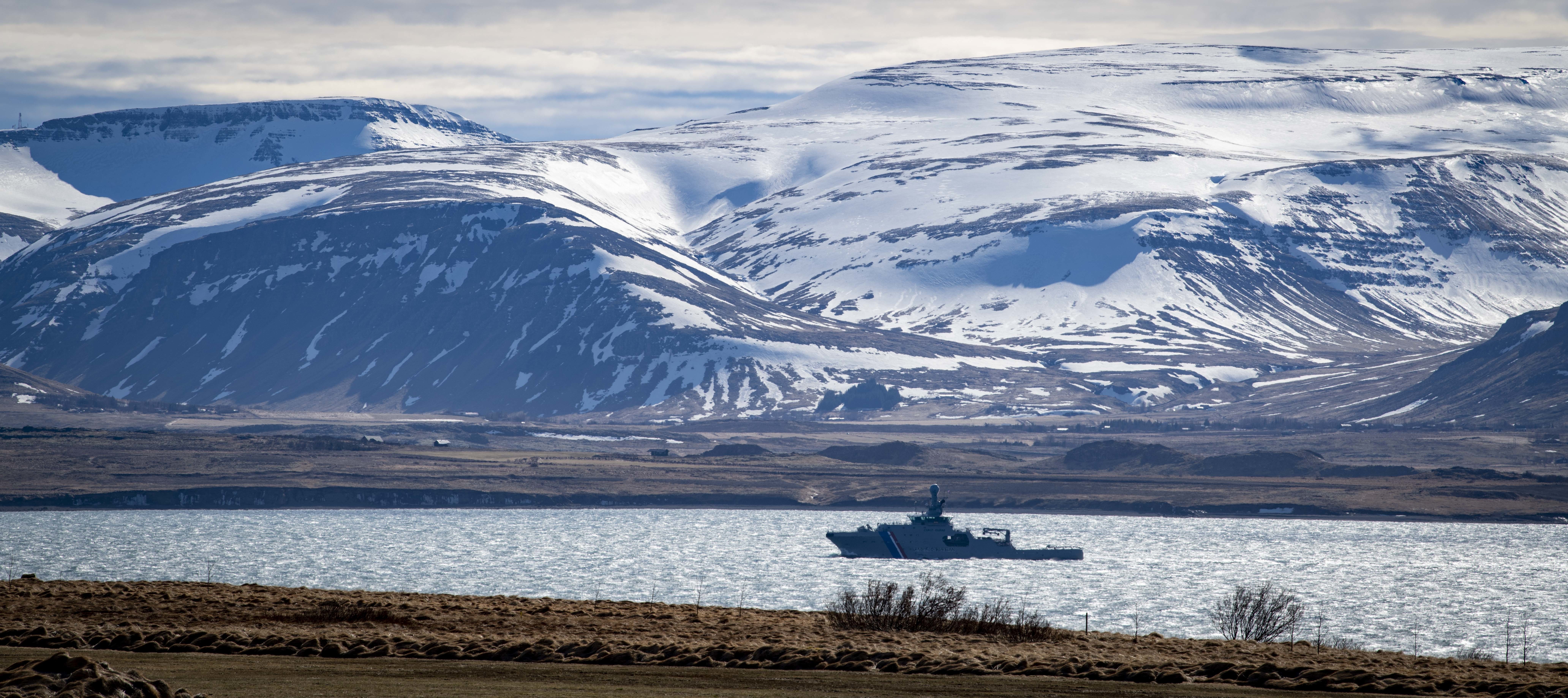
In the wake of Russia’s invasion of Ukraine, Iceland’s foreign minister this week expressed relief that her country is part of the NATO alliance.
“Thank God, we’re part of NATO,” because the North Atlantic island nation without an army can no longer “take peace for granted,” Thórdís Kolbrún Reykfjörd Gylfadóttir said at the Wilson Center on Thursday.

She added, “how long ago and far away” it seems when Iceland, a nation of a little more than 350,000, turned over the chairmanship of the eight-member Arctic Council to Russia in 2021.
It was also the time new Secretary of State Antony Blinken first met Russian Foreign Minister Sergey Lavrov in Iceland to discuss ways to ease tensions between the two nuclear powers.
Less than a year later, the Kremlin “decided to invade Ukraine because its leaders are threatened by our values” of human rights and democracy, she said.
“Everything has changed now” in Iceland, from its view of itself and the Arctic, to how it sees the region’s place in the world. For the first time, “we actually have a discussion about foreign policy,” brought on by the invasion.
The foreign minister said Icelanders recognize “they are in a strategic location, it’s in our DNA.” They also know that since 2008 NATO has been flying air policing missions over the island and waters to provide national security for a member nation. Iceland’s security forces consist of a three-vessel coast guard and four aircraft, but it has worked with NATO on modernizing facilities at Keflavik for air policing and maritime security air patrols.
“I truly thought this part of history [a large nation in Europe invading a smaller neighbor without provocation] had passed,” Reykfjord Gyladottir added. Speaking as a 35-year-old Icelander, “at least I know where I stand” on defending those values and a rules-based international order that the Kremlin is breaking by attacking Ukraine.
For Iceland to help Kyiv, Iceland joins in denouncing Moscow’s attack and is backing the imposition of more severe sanctions on Russian banks, industry and leaders. It also is stepping up to assist nations in other parts of the world that are feeling the impact of the war on their supply of grains and fertilizer for their crops.
“We [Iceland] can take more hits” than nations like Sri Lanka, which is confronted with runaway inflation and dwindling grain supplies worsened by the war. She said Iceland is asking itself “what can we do [to help] other regions” in this crisis.
Looking back at 2014 when Moscow annexed the Crimean peninsula, where its Black Sea Fleet is homeported and actively backed separatists in Ukraine’s Donbas region operate, she said, “maybe we should have done something different” that would have staved off the invasion eight years later.
The Arctic Council’s informal motto and international discussion about the Arctic before the invasion had been centered around an idea of “High North, low tension,” but that, too, has dramatically changed Russia’s invasion began. Parliaments in Finland and Sweden are seriously discussing joining NATO for the first time. She called those discussions “sensible” among “Nordic friends.”
“Russia can no longer be considered a reliable partner,” even when it come to the Arctic science and research, she said. The foreign minister added that Moscow is a major security threat to Europe, Iceland and North America, with its increased submarine activity in the North Atlantic.
Whether the Arctic Council can re-orient itself without Russia, the nation holding the most territory in the region and its waterways increasingly open to shipping, is unknown. Reykfjord Gyladottir said Finland and Sweden joining NATO would also change the dynamics of the council’s work, since security concerns for the region’s future would likely come to the fore.
In this crisis, she added that for Reykjavik, the “United States is an indispensable ally and friend.”
As for the Arctic Council at the moment, the seven member democracies, including the U.S., are boycotting the organization. Since its formation in 1996, the council steered away from security issues, concentrating on environment, climate, search and rescue, better telecommunications and the impact of energy development and increased shipping on indigenous people living in the region.
As the online session was ending, Reykfjord Gyladottir called her first visit to Washington, D.C., as foreign minister “a win-win” for both nations. She is leaving for New York believing the sessions with the World Bank were “doing good” on a number of issues, and she was “feeling good about it.”
The meetings with Pentagon leaders helped “strengthen and deepen the relationship when it comes to security and defense.”
She noted that the visit was also “good for NATO” and it coincided with the end of this year’s Northern Viking maritime exercise around Iceland. The exercise was led by the U.S. 6th Fleet.





